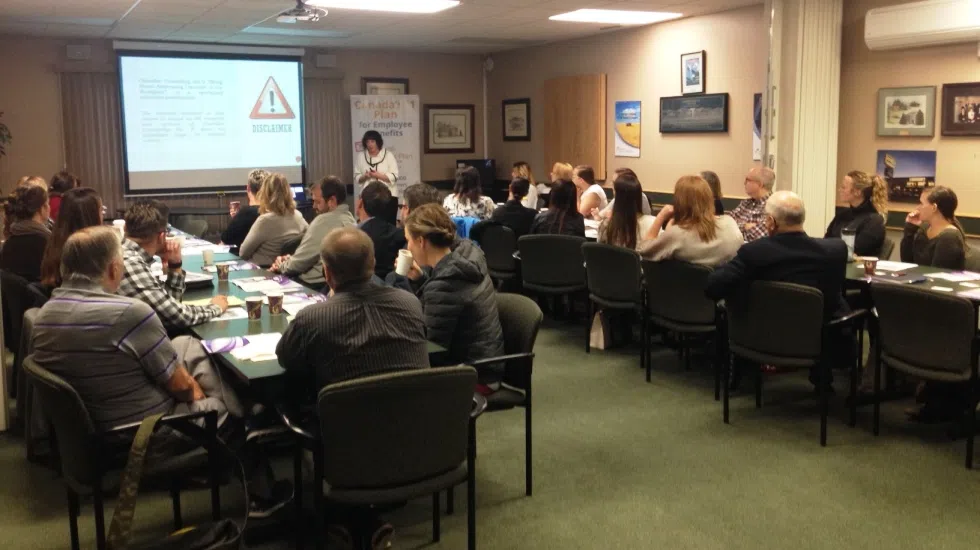
Local businesses preparing to address cannabis effectively in the workplace
With cannabis legalization just over a month away in Canada, local businesses had a chance on Wednesday morning to learn more about what they need to do to address cannabis effectively in the workplace.
The Red Deer and District Chamber of Commerce ‘Building Business Breakfast’ featured guest speaker Chelsey Tannahill BA, BEd from Chandler Consulting in Red Deer. She stressed the importance of having an “Impairment-Free Workplace and Substance Use Policy” in place for October 17, the date cannabis becomes legal in Canada.
Tannahill says there are three key areas for employers to focus on, including testing, policy and training.
“Making sure that any of the testing methods that we actually employ are actually supporting the objective of number two, our policy,” she explains. “So making sure that we have a fitness for duty or impairment-free policy that focuses on cannabis, calls it out and makes sure that it includes processes for handling those situations. Three, training, making sure that our employees, our supervisors and our program administrators are all well-trained on what it means to be fit, what it means to not be fit and what it means to be compliant with our policies.”


